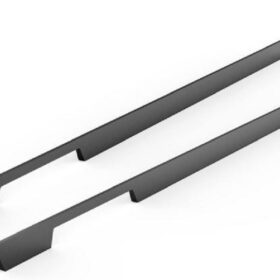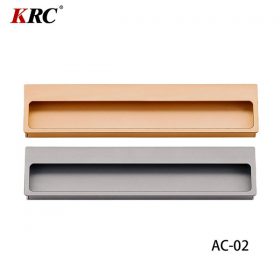The Environmental Impact of Wholesale Kitchen Handles and Sustainable Options
In today’s environmentally conscious world, it is crucial to consider the impact that our purchasing decisions have on the planet. Kitchen handles, seemingly innocuous components, can contribute to environmental degradation if not sourced responsibly. This article examines the environmental impact of wholesale kitchen handles and explores sustainable options that minimize our ecological footprint.
Materials and Production
Traditionally, kitchen handles are made from metals such as steel, brass, and aluminum. These materials are often extracted through mining, a process that disrupts ecosystems, depletes natural resources, and emits greenhouse gases. Additionally, the manufacturing of metal handles typically involves energy-intensive processes like forging, casting, and plating, further contributing to carbon emissions.
Waste and Disposal
Wholesale kitchen handles are often packaged in excess plastic and cardboard, creating significant waste. Furthermore, when handles are replaced or discarded, they end up in landfills, where they can take hundreds of years to decompose. Metal handles, in particular, can leach toxic chemicals into the soil and water table over time.
Deforestation and Carbon Emissions
The production of some materials used in kitchen handles, such as wood, can lead to deforestation. This not only destroys vital ecosystems but also reduces the planet’s capacity to absorb carbon dioxide, a major contributor to climate change. Additionally, the transportation of wholesale kitchen handles from production facilities to distribution centers requires fossil fuels, releasing additional greenhouse gases into the atmosphere.
Sustainable Options
To mitigate the environmental impact of kitchen handles, there are several sustainable options available.
Recycled Materials
Kitchen handles made from recycled metals or plastics reduce the need for virgin materials, saving energy and reducing greenhouse gas emissions. Recycled handles can be just as durable and stylish as those made from new materials.
Biodegradable Materials
Handles made from biodegradable materials such as bamboo, cork, and paper pulp offer an environmentally friendly alternative. These materials are derived from renewable resources and decompose naturally, minimizing waste.
Energy-Efficient Production
Some manufacturers have adopted energy-efficient production techniques, such as using renewable energy sources and optimizing processes to reduce waste. Choosing handles from companies that prioritize sustainability supports responsible manufacturing practices.
Conclusion
By understanding the environmental impact of wholesale kitchen handles and choosing sustainable options, we can minimize our ecological footprint and make informed purchasing decisions. Recycled materials, biodegradable materials, and energy-efficient production methods offer viable alternatives that protect our planet while enhancing the aesthetic appeal of our kitchens.
-
2024-09-14Exploring the Different Types of Modern Closet Door Pulls and Their Applications
-
2024-09-14How Cabinet Door Pull Handles Support High-Traffic Areas
-
2024-09-06Cost-Benefit Analysis of Investing in High-Quality Long Wardrobe Door Handles
-
2024-09-04How Flat Cabinet Handles Enhance Modern Interior Design
-
2024-11-29Top Trends in Modern Kitchen Cabinet Pulls for 2024
-
2024-11-28The Ultimate Guide to Modern Kitchen Cabinet Pulls- Materials, Styles, and Tips
-
2024-11-27Elevate Your Kitchen Design with These Must-Have Modern Cabinet Pulls
-
2024-11-26Sleek and Stylish- The Best Modern Kitchen Cabinet Pulls for a Contemporary Look






